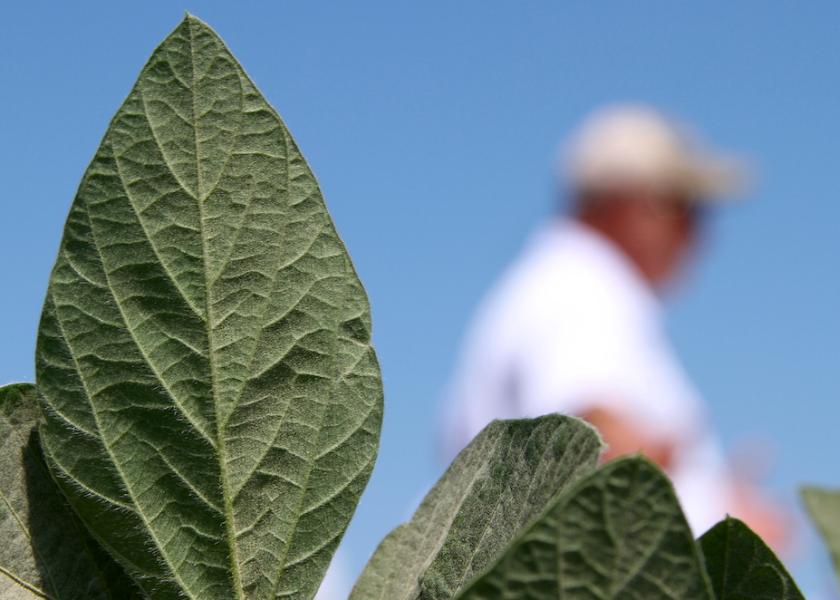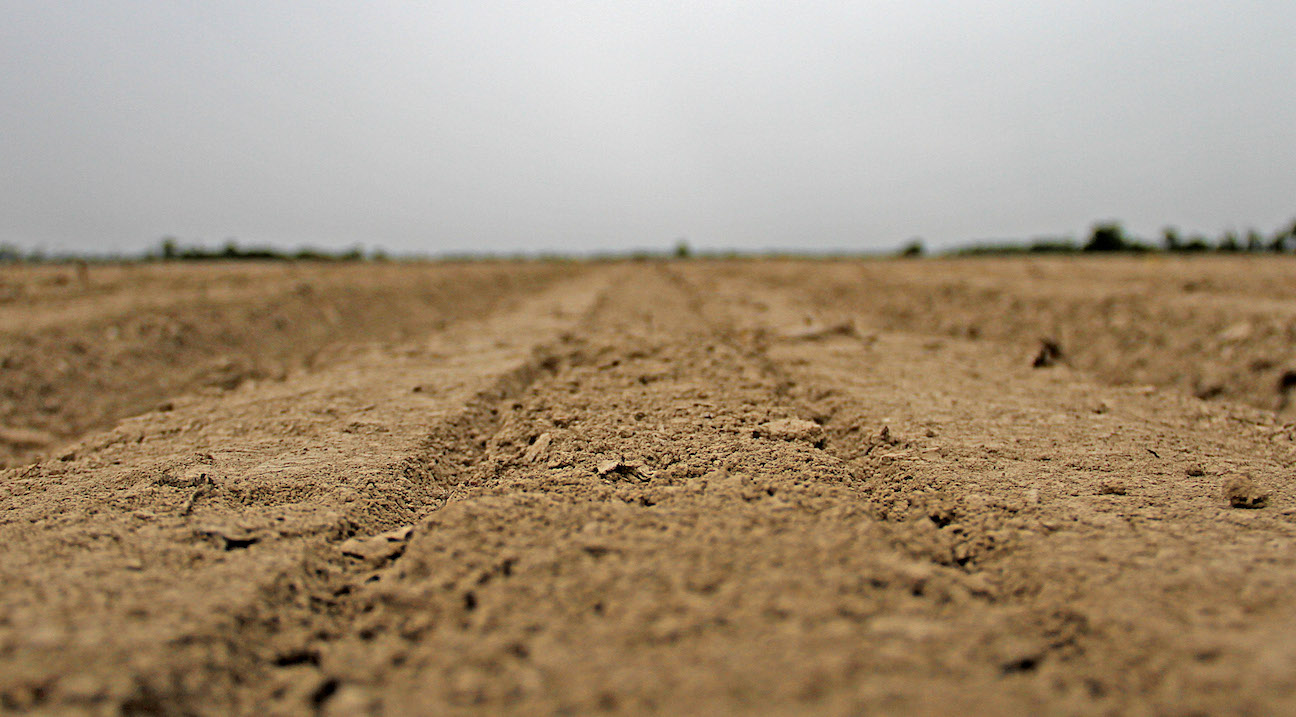Landowner Sues EPA and Demands Jury Trial

A federal agency’s ability to act as judge, jury, and executioner—all within the confines of its walls, according to its self-written regulations, and before its own employees acting as arbiters—is a violation of the Constitution, contends Thomas Villegas.
Accused of environmental violations and tagged with crippling fines, Villegas is demanding a jury of his peers, rather than submitting to an in-house agency trial. Essentially, the Nebraska landowner claims the administrative state operates a fixed game.
Villegas’ federal lawsuit could have massive implications. If he prevails, the precedent could protect landowners and private business owners from being accused, judged, and sentenced by the same set of unelected government employees.
Biting the Apple
In 2015, Thomas and Amy Villegas bought 80 undeveloped acres of rural Lincoln County ground in southwest Nebraska. The ground was a mix of farmland, pasture, and river bottoms lined with streams and ponds adjoining the Platte River, and the husband-and-wife pair purchased the property for recreation and hunting use.
However, according to Villegas, the 80 acres contained a significant number of decaying trees, along with a heavy presence of phragmites—an invasive weed highly disruptive to wetlands, native vegetation, and habitat. In 2017, Villegas carved a road into his acreage, drove in several pieces of equipment, and began a multi-year process to remove dead trees and phragmites.
“You couldn’t even walk through the property when we started,” Villegas describes. “It is beautiful now.”
In May 2021, without Villegas’ knowledge, a neighboring property owner notified the Environmental Protection Agency regarding Villegas’ restoration. The complaint triggered an EPA phone call to Villegas, along with on-site inspections in 2021 and 2022. EPA levied a $300,000 fine against Villegas, accusing him of dumping “dirt, spoil, rock, culverts, trees, and sand into the water of the United States,” specifically centered on what the EPA claims are 5.7 acres of wetlands and 210’ of Platte River tributaries.
(EPA did not respond to Farm Journal questions regarding the Villegas litigation.)
EPA’s complaint against Villegas stayed in-house for judgement, funneling to EPA Chief Administrative Law Judge Susan Biro. In a nutshell: EPA asserted the power to make the assessment of whether Villegas committed a violation, then levied fines, and finally deployed one of its own members to judge its actions.
Even if Villegas were to successfully defend himself before the EPA judge, EPA staff could take the case to the EPA Appeals Board within its own agency and start up the merry-go-round once again. Translated: EPA and other government agencies get as many bites at the apple as they choose.
(Case in point, see Quadruple Jeopardy? Farmer Prevails in Bizarre Wetlands Regulation Saga. In an extended, surreal chain of court battles, Kurt Wilke’ family defeated NRCS four times between 2011 and 2016 in a wetlands dispute over the same piece of central Illinois farmland, raising deep questions over process and power. “If we would have lost at any point, the case would have been over,” Wilke told Farm Journal in 2020, “but when NRCS lost, they just reshuffled the deck, dealt four do-overs, and issued new determinations each time. It was unconscionable behavior and people need to know what happened.”)
Villegas, a professional excavator cognizant of CWA regulations, has fought from the get-go, declaring his innocence. In April 2023, represented by the Pacific Legal Foundation (PLF), Villegas filed a federal lawsuit. “We are in shock, but mad,” he says. “We want a jury trial.”
Sky-High Win Rates
“Thomas Villegas wants a jury of his peers,” says PLF attorney Michael Poon. “He wants the claims of the government weighed by his fellow citizens, instead of being judged by the employees of the same agency making the charges against him,”
“All Thomas did was remove a fire hazard of dead trees and an invasive weed species on his own land,” Poon explains. “The EPA then went after him with a $300,000 fine, even though Thomas knows he’s done nothing wrong. Where is fundamental fairness and accountability when the same agency accusing someone also gets to judge them?”
Whether deployed by EPA, USDA, DEA, FTC, FDA, or a host of other agencies and departments, more Americans, Poon contends, are waking up to the discrepancies of administrative adjudication. “Right now, all that EPA or any other agency has to do is convince one of its own employees acting as judge that they’re right, and boom—EPA gets to fine and control a private citizen,” Poon notes. “If EPA had to convince a jury and outside judge of their complaints against private citizens, then EPA would think twice before levying fines. That’s a much needed check that was envisioned by our framers.”
“When an agency takes a landowner or farmer into court, the agency very, very rarely loses,” Poon adds. “The agencies rely on the in-house adjudication system, and that partially explains why these agencies have such sky-high win rates.”
Illustrative of Poon’s contention, former FTC Commissioner Joshua Wright made telltale remarks in 2015 about the agency’s remarkable win rate from roughly 1995 to 2015: “In 100 percent of cases where the administrative law judge ruled in favor of the FTC staff, the Commission (appeals board) affirmed liability; and in 100 percent of the cases in which the administrative law judge found no liability, the Commission reversed. This is a strong sign of an unhealthy and biased institutional process.”
Indeed. 100 percent in-house success.
“It makes sense,” Poon explains. “If you are the one going after private citizens and you also get to decide who is right, then you are going to decide you are right.”
Prosecutor, Judge, Jury
In April 2023, Villegas’ lawsuit was filed in the U.S. District Court for the District of Kansas, the same region where EPA launched its actions against him.
“We’ve filed in federal court and await the government’s answer,” Poon says, “but each day the Villegas are trapped in EPA adjudication is a day they shouldn’t have to deal with this because it is a violation of the Constitution, period.”
“Down the line, this case could have major ramifications for people in similar circumstances, and all administrative agencies could be affected,” Poon emphasizes. “Having government agencies play prosecutor, judge, and jury is not what our founders intended.
“I have done nothing wrong,” Villegas concludes. “The $300,000 penalty does not scare me. Real Americans do not live scared, not even from their own government.”
For more from Chris Bennett (cbennett@farmjournal.com 662-592-1106) see:
Priceless Pistol Found After Decades Lost in Farmhouse Attic
Cottonmouth Farmer: The Insane Tale of a Buck-Wild Scheme to Corner the Snake Venom Market
Tractorcade: How an Epic Convoy and Legendary Farmer Army Shook Washington, D.C.
Bagging the Tomato King: The Insane Hunt for Agriculture’s Wildest Con Man
Young Farmer uses YouTube and Video Games to Buy $1.8M Land
While America Slept, China Stole the Farm
Bizarre Mystery of Mummified Coon Dog Solved After 40 Years
The Arrowhead whisperer: Stunning Indian Artifact Collection Found on Farmland
Fleecing the Farm: How a Fake Crop Fueled a Bizarre $25 Million Ag Scam
Skeleton In the Walls: Mysterious Arkansas Farmhouse Hides Civil War History
US Farming Loses the King of Combines
Ghost in the House: A Forgotten American Farming Tragedy
Rat Hunting with the Dogs of War, Farming's Greatest Show on Legs
Evil Grain: The Wild Tale of History’s Biggest Crop Insurance Scam









